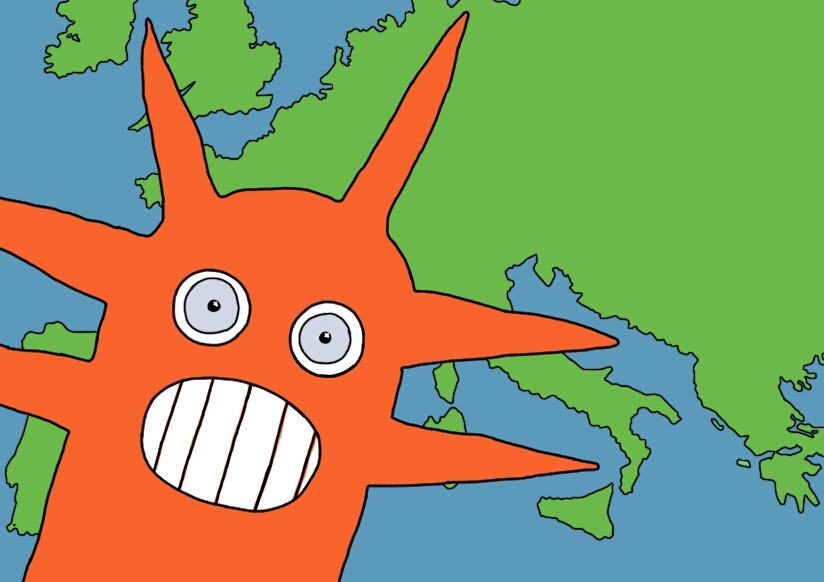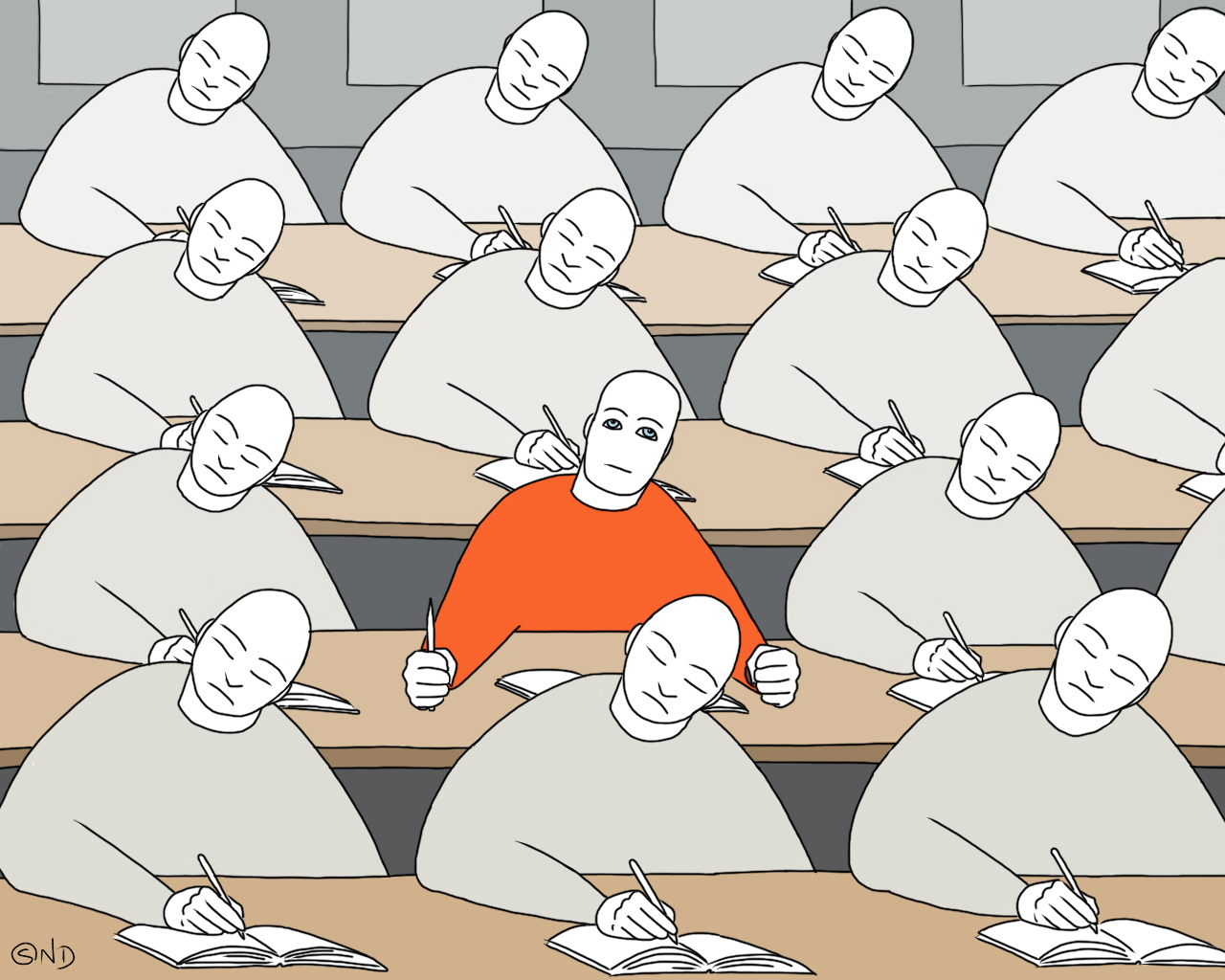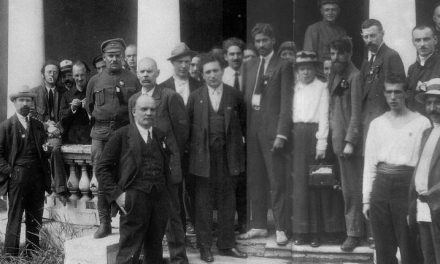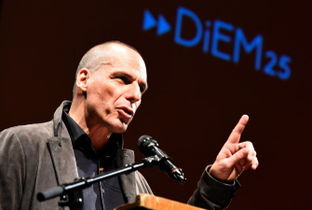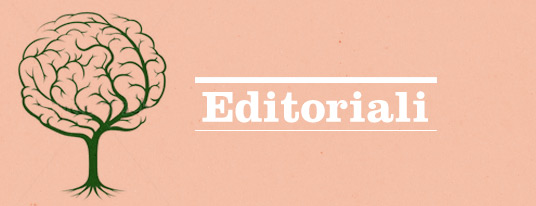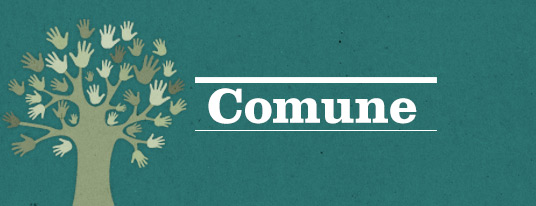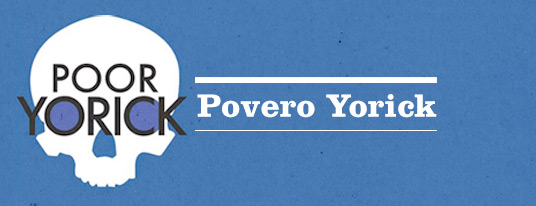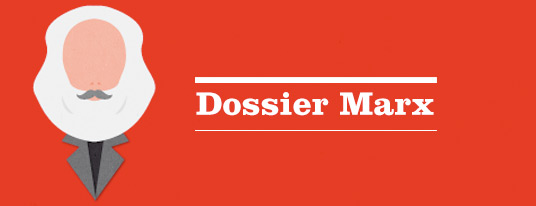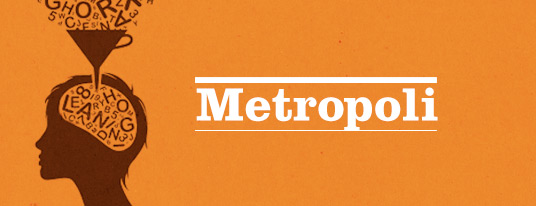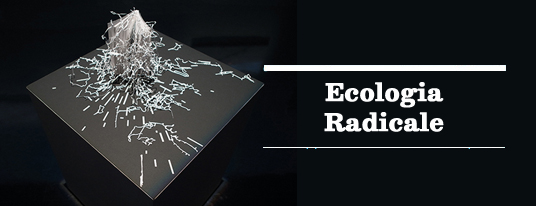by THE ROSA LUXEMBURG FOUNDATION*.
Millions of people look to «Europe» with hope. Despite developments to the contrary, they view «Europe» as offering them protection from war and persecution. Every day, the people who cross our militarised borders ensure that the issue of another future for Europe remains open. «Europe» also includes the millions who welcome the people arriving at this continent in search of refuge. In welcoming refugees, people in Europe are calling for a caring and democratic way of life, and are taking a political stand against an individualised competitive society and «post-democracy». Furthermore, «Europe» also includes everyone who opposes the view that there is no alternative to austerity and its authoritarian-oriented regime, as well as everyone who campaigns for housing, health and education, a healthy environment and guaranteed social and labour rights for all. This Europe, however, is currently being overlooked due to the polarisation between the authoritarian ruling power bloc and increasing levels of radical right-wing populism. We need to make this «third pole» within Europe more visible and politically effective.
Europe is not something that exists over the horizon, nor is it merely a possibility. In fact, many people are already experiencing the bloody reality of real-existing Europe. The EU’s institutions and politicians have systematically impoverished entire societies, and they have eroded parliamentary democracy and organised and reinstated the outward isolation of the EU. Moreover, even if its internal conflicts and the variable geography of European processes were to be resolved, Europe still does not seem in particularly good shape. For many people, «Europe» has become synonymous with impoverishment and reductions to social and democratic rights. Clearly then, Europe does not represent hope for everyone: it also stands for less democracy, fewer social rights and more neoliberalism. This image will only be broken if «Europe» becomes associated with rising prosperity, but this view has become secondary since the crisis.
Europe now represents a common problem, not least for the left. This situation is affecting the divisions within the left, and influencing the factors that link us together in a negative sense: despite all of their differences and their national and local particularities, social conflicts are becoming increasingly synchronised and are producing a shared situation that is causally intertwined with the continent’s political development. This has led to the creation of common issues that include new right-wing populism, migration, neoliberal austerity, democratic alternatives, the renewal of social democracy, new left-wing parties and the emergence of new social movements. Although these factors did not necessarily arise at the same time, they did so within a shared context, and during a particular period. Even the «anti-European left» understands this, and, no matter what they suggest, realises that attacks against the EU must remain European – just as the «pro-European» left always needs to begin by highlighting the need for attacks against the EU’s «undemocratic institutions». The contradictions faced by European left-wing politics, therefore, cannot be resolved through discussion alone.
But which Europe and which EU are we actually talking about? The summer of migration has deepened the political fissures in the European power bloc, and the UK referendum has produced further mistrust. New and variable alliances are emerging; European countries are forming new groupings depending on the issue at hand, and diverse institutional arrangements continue to exist (Schengen; the Eurogroup, the EU etc.). Moreover, they are becoming increasingly fragile. At the same time, a situation has developed in which political camps are divided throughout the entire continent along the lines of certain European «Gretchen» questions: «What do you think about the EU and the people seeking refuge?» These are not the only questions that are currently causing a rift through diverse political camps, and they are also leading to strange new connections. But what does this actually mean?
Europe’s political development, it is claimed, is characterised by a single trend: the choice between right-wing populist isolationism and authoritarian neoliberalism. This trend is said to require nothing less than a transnational response and to mean that the left will have to rely on internationalism in order to be well positioned against the new right-wing populist International. But is this really the case?
In general, we do need to be open to rapid societal shifts. The European crisis is far from being solved, and dramatic twists are continually taking place: the coup against the Greek government last summer, the reaction to the summer of migration and the establishment of what at best can be described as a right-wing populist party in Germany, etc. But unexpectedly welcome developments are also occurring, and these range from the social democratic winds blowing through Britain and the US to the anti-austerity government in Portugal, the welcome initiatives, and Nuit Debout in France. These developments are further expressions of the pro-democracy movements of 2011. It seems the «third pole» is still active!
There is no point deluding ourselves; it is still unclear what will happen in the future. To provide just one example: the situation faced by those who arrived in Greece having fled their countries of origin and the handling of such people by the Turkish government are clearly untenable. Although the inhumane closure of the Balkan route has reduced the domestic pressure placed on the German government, the deal with Turkey can and probably will eventually unfold with explosive force. Moreover, the Brexit debate is fuelling tendencies towards EU disintegration. Finally, a fresh round of Spanish elections are due to take place in June. These factors demonstrate that we not only need a strategy that can react to political events but that can also develop its own agenda.
The situation of the left
The European left is confronted by a divergent state of affairs. In many parts of the East, the left is in a highly precarious position. Scandinavia, Germany, France and other northern countries lack the dynamic for a left-wing turnaround; but the radical right is gaining in strength. In contrast, the political landscape has been shaken, and established parties have been weakened in countries that are still affected by the crisis. This includes Greece, Spain, Portugal and Ireland. However, it is here that social movements and left-wing parties are experiencing a revival. Nevertheless, the ruling groups and governments have been unmoved by this development, and they continue to implement their austerity policies devoid of hope while relying on their structural, transnational power. As of yet, neither the broad and vibrant currents found in civil society organising nor the new governments in Greece and Portugal have been able to reach the «strong institutions» of power.
Although the struggles have returned to Europe, a European movement has yet to be established, even if there are indications that such a movement might be developing. At the moment, struggles tend to take place at the national level, whereas cross-border struggles have been slow and selective in development. The reason for this is that the current conditions are characterised by asynchronicity, the dynamics are too varied, and the forces involved have lacked sufficient strength. Importantly, the learning processes that pave the way to practical solidarity are certainly challenging, but not without a chance of success. Discussions continue to take place in countless meetings of various size about contradictions, problems, strategies and the ways of speaking about particular issues. However, it is still unclear which aspects could act as condensation points for transnational organising.
Countries characterised by a weaker dynamic, such as Germany and Italy, tend to be more strongly oriented towards Europe. In contrast, in countries with a strong left-wing dynamic, or where the impact of the Troika’s policies leads them to reflect a negative image of the EU, the European perspective plays only a subordinate role.
This certainly applies to countries ranging from Greece to Portugal. As such, attempts to «increase numbers» have been far more successful when played out at the local and national level. Clearly then, European-wide organising is needed more urgently than ever, at least if we really do intend to reach the solid institutions of transnational power.
Solidarity between unions in Europe is dire. Moreover, the European Trade Union Confederation is not particularly suited to act as a means of European-wide coordination due to the strong interests of its member associations and unions, and the large differences between the conditions found in their respective countries. Nevertheless, on November 14, 2012, an unprecedented step took place in the history of the Confederation: a joint general strike was organised alongside supporting events in several European countries. However, as German unions such as IG Metall are embedded within German crisis management they are torn between their critique of neoliberal austerity and the benefits they enjoy at the expense of other groups of wage earners. This has led to very little practical participation on the part of German unions in European protests against the crisis. Similarly, it was not until relatively late that German unions developed effective criticism of the Troika and expressed solidarity with Greece. In fact, this situation only changed with the call to «re-found Europe» and with the DGB’s proposal for a «Marshall Plan for Europe». Nevertheless, even these demands have remained largely without consequence.
For an OXI camp: a constitutive process and the re-establishment of Europe
1 It was always clear and repeatedly stated by Tsipras: no one country would be able to make it by itself. Syriza attempted the impossible, but it won time and politicised the issue of the (debt) crisis and democracy in Europe. At the same time, it acted as a «large catalyst» (Strohschneider) and unmasked the authoritarian-neoliberal character of the current EU project; moreover, it aroused hope for another Europe. Accordingly, we now need to speak differently about many issues within the EU.
2 The left in the «core EU countries» has contributed too little towards a shift in the balance of power. The left, which is not actually that small, and includes parties, movements, intellectuals and trade unions both in Germany and in the wider EU, failed to launch a joint initiative that went beyond internal conflicts to find a unifying goal in order to move closer towards the end of austerity and the authoritarian-neoliberal European project.
3 Therefore, we also need to ask what a strategic – and not just an issue-related – position would actually have to look like if it were to have a chance of changing the current balance of power. This, of course, brings us back to the question of organising: we need to increase our numbers! Importantly, we can learn a tremendous amount in this regard from the lessons learnt in Greece and Spain since 2011. These two countries have shown that the grassroots can be broadened through a strategy that deploys civil-societal organising to strongly intervene in specific everyday social relations and link these relations to changed practices within the left-wing mosaic. This strategy could provide the left with influence above and beyond the usual left-wing and activist milieus. Structures of solidarity based on mutual support and political organising, and that link new types of «connected parties» (Porcaro) would be central to this. Syriza, the connected local platforms (in other ways), and Podemos (at least in some respects), act as condensation points that could translate civil-society self-organisation and protest into a perspective for taking over government power. However, before we can «fail» as well as Syriza has, we will first need to meet its success in other countries. Or perhaps we should take an entirely different path?
4 When speaking about a shift in the balance of power in Europe, it is essential that we recognise the importance of transnational organising by trade unions. In 2015, Syriza’s experiences clearly demonstrate how weak or even absent the trade union response can be. Nevertheless, without union involvement, any attempt to shift the balance of power will fail. Many wage earners are still organised in unions and this should be welcomed in principle. But how can we overcome competition and conflicts between unions in different countries? What common demands would ensure that workers in Europe no longer fight against each other but with one another, even if austerity affects them differently? The fact that representatives from the FIOM were at the Blockupy protests during the opening of the ECB in March 2015 is a step in the right direction, but it is not enough to meet the challenges.
5 Since 2011, democracy movements have been resisting the authoritarian crisis management implemented by the austerity regime. Moreover, the Greek experience has led different initiatives to attempt to build a European-wide democracy movement. They are trying to do so before it becomes too late and the decay of the EU pushes Europe back into a situation similar to that of the 1930s. The most well-known of these initiatives include DiEM25, variants of Plan B, the Alter Summit and Blockupy. But what limits are these initiatives coming up against? How can they be connected? And what would they have to connect to in order to «increase their numbers»?
6 The need for EU-wide and European groups to join forces is clearly understood and is currently being pursued with vigour. But these efforts will be wasted if they only result in a number of competing initiatives that remain below the necessary critical mass and dissipate due to their ineffectiveness. Discussion regularly takes place about «What is to be done?» and about all of the things that need to be changed, but this is rarely followed up by the question: «Who the hell is going to do it and how?». Debates about the political form that organising should take and about the process of locating connecting practices are currently more important than ever. However, this debate hardly ever goes beyond the level of issues and the assumption that if we only had better alternatives, everything else would fall into place. This leads to the striking lack of foundation characterising many initiatives. How can we ensure that these diverse initiatives do not merely develop into a European activist jet set that produces a bubble of excited debate while having very little impact on real power relations in the EU?
7 Forces that could be referred to as a new movement of municipalism have a somewhat different strategic emphasis: they assume that attempts to promote European organising will be in vain as long as no basis exists for organising within people’s daily lives – in neighbourhoods, in the workplace and in local communities. In Spain, connected platforms have won control of the country’s major cities. It is not only in Barcelona and Madrid that the mayors stem from the new left-wing local governments. Similarly, it is no coincidence that the new movements have emerged at the neighbourhood and city level. Due to the low levels of resources available to the left, this perhaps constitutes the necessary – albeit inadequate – site of politically organising a popular movement aimed at «increasing our numbers». This strategy enables participatory forms of organising to be combined with assemblies that provide credible interest representation, and institutional practices that open up the apparatus to «the masses» while returning consultations and decision-making to civil society. However, we also need to ask which sites are the most appropriate for left-wing organising, and this always depends on the situation.
8 Syriza’s experiences demonstrate the limits of what national governments can do within an authoritarian Europe. This will also be true – in a different way – for new municipalism. Therefore, a «jumping scale» is needed that translates this form of politics and organising and links them to the European level. This could be done through networks of cities and regions or, more emphatically, via the prospect of a European community and a constitutive process for another Europe from below. Accordingly, connecting local platforms were prominently engaged in the founding of DiEM25. Ciudades rebeldes, the network of major cities in Spain that have been governed by the left since May, is an example of what such a movement for democracy might look like.
9 The level of the (nation-)state continues to be the most important site for democratic processes, even if it is inadequate. Left-wing organising is also mostly played out at this level through movements and political parties. Consequently, it should not be surprising that the state remains an important point of reference; this has also been the case for the reorganisation of the left in Italy. However, organising at the state level need not be viewed as inconsistent with attempts to organise and participate at the European level. Does the construct «Europe» not lead to a two-level focus – a focus on the state and the European level? This is not an either-or situation, but about developing situation-specific priorities and connections.
10 The state level also remains a key battleground for left-wing governments. In October 2015, the Portuguese Communists, Left Bloc and PS provided their support to a socialist minority government. If Spain is soon governed by the centre-left, it would at least be possible to exchange quantity for quality, and, together with Greece, Portugal and Spain, three anti-austerity governments would be able to partially question the balance of power within the European institutions.
11 Many people view recovering sovereignty as an important issue when it comes to Europe. However, defending achievements at the member-state level can easily reduce these issues to demands about «national sovereignty». This need not be the case. It is very unlikely that a nation state would be able to regain all of its sovereignty through struggles at the national level, particularly in times of transnational production networks and financial markets. Furthermore, we still need to ask ourselves, «Who is this sovereignty for?» – surely it is not for the state! People complain that they have no influence over their daily lives, and that they want to make decisions themselves. Therefore, this issue is not about relapsing into nationalist discourse, but about the sovereignty of the popular classes. This applies to all levels of policy, from local and regional to state-based and supranational policy. Could the discourse of sovereignty that is being conducted by initiatives from Plan B to DiEM25 constitute a connecting perspective? And would this enable the drive towards renationalisation to be transformed into a drive towards decentralisation and Europeanisation?
12 Finally, what might this architecture actually look like? It would have to focus on expanding material democratic, social, environmental and individual rights. There are many ideas about how to enforce appropriate minimum European standards, establishing social corridors as institutional mechanisms for the careful upwards-alignment of living conditions in Europe, ideas on tax justice and limitations on the power of «financial markets» and corporations, etc. Once again, the role of the trade unions and their potential for transnational organising would be highly significant.
Some specific proposals
13 Strengthening participation from the local to the European level would constitute a further leitmotif towards «real» instead of just formal and representative democracy. This could include referenda at the local to the European level as well as institutionalised participation in everyday policy making, such as through local or regional representative councils. Parliaments at all levels need to be strengthened in relations with executives; civil platforms and councils should be integrated into decision-making, and the power to make certain decisions must be returned to civil society. Finally, the European Parliament must be provided with the full parliamentary rights of a legislative.
14 It would also be worth considering «giving back» certain competencies that are currently at the EU level to other levels. This would involve developing new connections between decentrality and transnational exchanges: local issues should be decided at the local level. Aspects that have an impact on other people above the local or regional level should be regulated either above the level of the region or by the state with the participation of those affected. Certain issues, however, would need a European answer, such as European infrastructure, climate policy, the regulation of financial markets, financial compensation, etc. The constituent process aimed at providing the European project with a fundamentally new constitution and statehood would also have to decide which issues should be dealt with at which level. This also concerns, but is not limited to, the re-establishment of existing institutions. Given the asynchronicity of political processes in Europe, it could be strategically necessary to ensure that aspects such as the self-determined acquisition of competencies, money creation, taxation and the regeneration of state apparatuses are undertaken at a lower level within the European «multi-level» system. This would be important when the superordinate EU or state level purposefully blocked democratic processes and decisions, as was the case with the Greek OXI vote or was and remains the case with the situation in Catalonia. The self-determined acquisition of competencies in more limited arenas, therefore, could be necessary in order to stabilise democratic processes or even to enable them; however, this could be a temporary situation and change as soon as a better solution in a larger arena were possible.
15 Initiatives that do not fundamentally question old institutions and create new ones will have no chance of success. We therefore need to change terrain and build alternative democratic institutions. A participatory, locally and supra-regionally linked constituent process of consultation and organising implemented in assemblies similar to councils from the neighbourhood to the European level would have to deal with the enormous task of condensing diverse left-wing positions into a common alternative. There is, of course, no need to wait until the institutions provide their permission for this process: we could just «go ahead» and organise it!
16 It would also be important «to organise political processes of understanding that, for example, actively use the European Parliament and the idea of a European Convention, but that do so without limiting themselves to these institutions and ideas» (Wolf 2016). This needs to be done not just at the civil-society level, but also at the level of the EU. This process could result in the establishment of a constituent assembly for Europe, which, at the very least, would need to be chosen through universal and equal elections – at the beginning of the 20th century, this strategy enabled the masses to participate in politics and it is currently being reworked by initiatives such as DiEM. What kind of Europe do we want? How do we want to live in it?
17 An alternative to the current situation should neither be abstract nor idealistic; instead, it needs to be based on people’s everyday problems and on real power relations. A constitutive process would not act as a constitutional process at first, but, instead, primarily focus on the construction of a political subject of the many. This would prevent the discussion from becoming abstract and technocratic and therefore having very little prospect of implementation.
18 A constitutive process such as this could and must begin at all levels: from the local to the European level, and within and against existing institutions. The rebellious cities in Spain that are fighting to redefine their competencies or, for example, to force a renegotiation of debt audits and debt cancellation, provide a good example. The Catalan independence process provides a further example, as does the debate conducted by Madrid’s Plan B initiative about a centre-left government (and a bloc consisting of Southern European centre-left governments) using a «unilateral» redefinition of the relationship with the EU to force a new process of EU constitutionalisation – a new foundation of the EU that would defend and emphasise its positive elements. This would have to be supplemented by a European process of understanding, as has already been started by various European platforms.
19 Is this all too complicated? Perhaps it would help to depict the constitutive process as a drawing of a roof with real democracy at its vanishing point. Very different groups and initiatives would be able to place their interests and projects within this «floating signifier», pursue their practices and continue work on their major themes (from TTIP, to debt, anti-austerity to refugee policy, the independence of Catalonia and other regions or the debate over the monetary system). However, they would be doing so within a process from below that takes the constitutive process as its reference point and provides a perspective. Each of these issues and movements involves essential issues of democracy and the constitution of an alternative Europe.
20 One element of European understanding from below could be a campaign aimed at organising aEuropean citizens’ initiative that would set itself a small number of core goals. These goals would also have to be selected first and could include a) an end to cuts and privatisation; and support for investment in a European-wide social infrastructure (health, education, housing, energy, mobility); as well as b) solidarity with people who have fled their countries of origin. These issues could certainly be better and more clearly formulated, but it would be important to avoid choosing more than two or three issues. The anti-TTIP campaign most recently demonstrated that European campaigns are certainly possible. This time, however, the campaign should be more ambitious.
21 The anti-democratic hegemony, and the subjugation and impoverishment of Greece, was viewed critically by a significant minority of 20 to 30 per cent of the German population. This reached far into the left-liberal, green and centre of society to include Jürgen Habermas, Gesine Schwan, Reinhard Bütikofer and many others. The drama of the refugees has considerably intensified this unease. «More than ever, we need to exceed the previous limits of protests and form a social camp of those who are saying ‘No’ to austerity policies and the destruction of democracy, and that goes beyond classic left-wing circles» (Bernd Riexinger, Neues Deutschland, 08/11/2015). In the rest of Europe, disapproval of the German government, in particular, has grown enormously. It would certainly do no harm if left-wing parties, social movements and critical trade unionists throughout Europe were to agree on a few minimum demands with which to set up a campaign.
22 These and other strategies will be discussed at the Rosa-Luxemburg-Stiftung’s European strategy conference «Europe – what’s left?» with diverse social initiatives, groups, currents and organisations. In addition to political issues, we will also need to find the right policy forms and connect them. Moreover, we need to develop a strategy with which to connect the different levels – local/municipal, state, EU-wide and European – despite the scarce resources available to the left. Which is the right level for political intervention and organising? The aim – despite the different positions and goals – is to find connecting perspectives and practices that do not represent a unified approach but still enable a synchronisation of rebellious politics aimed at making another Europe possible. This time, we will be doing it together. The first step in any constitutive process is the creation of a political subject.
*The organizers of the conference «Europe – what’s left?»

